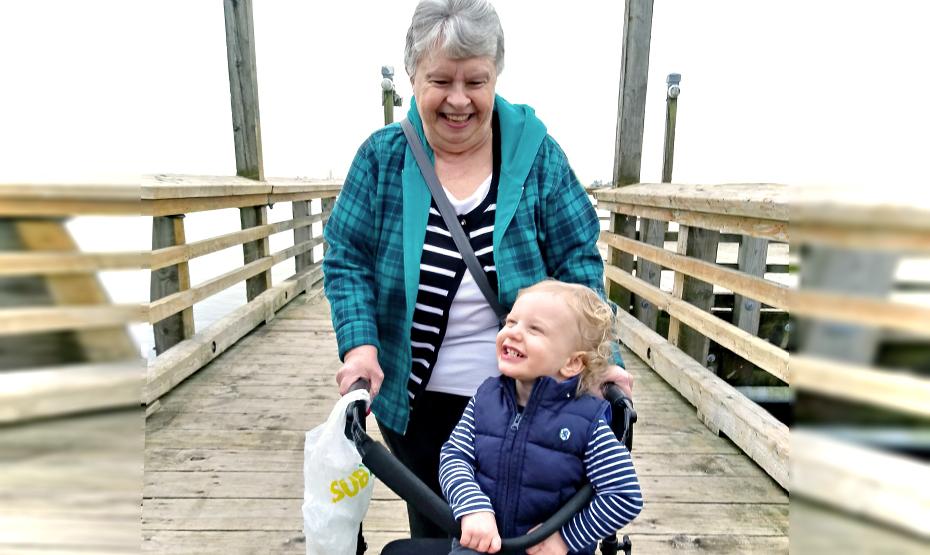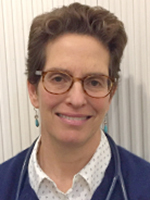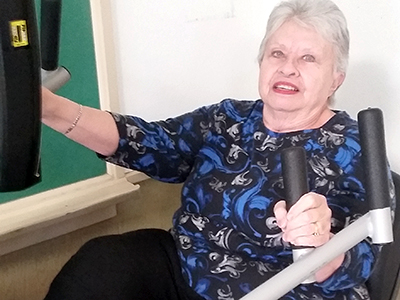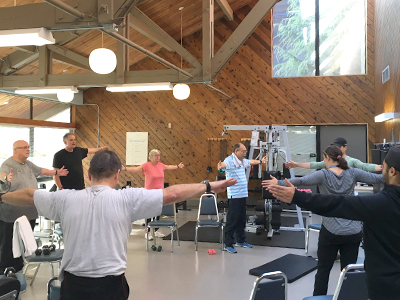
"I say yes to participating in research because it could help prevent people like me from having to get a pacemaker or undergo surgery.”
– Gloria Muche, Richmond
Talk with Gloria Muche now and the active 70-year-old will tell you that she regularly volunteers at her local church, works out at the gym and goes for long walks with her children and grandchildren. It is hard to believe that less than one year ago Muche led a relatively sedentary life, struggled to walk up a flight of stairs and was experiencing heart palpitations.
“I was out of breath just walking down the hall,” she recalls. “I spent a lot of time sitting and watching TV, and my energy levels were low. ”
Muche’s life changed after she met Dr. Teddi Orenstein Lyall, a Vancouver Coastal Health Research Institute researcher who led a six-month clinical trial in which Muche participated.

The study gave participants with non-valvular atrial fibrillation (AF) tools to manage their symptoms. Non-valvular AF is an irregular heart rhythm often associated with such things as high blood pressure, sleep apnea, obesity, diabetes and sedentary behaviour. Researchers wanted to determine whether a program of diet, exercise and stress management training would lessen adverse cardiac symptoms and improve participants’ health and quality of life.

“Atrial fibrillation is a continuum that can wax and wane,” says Orenstein Lyall. “As the years go by, it can become permanent.”
“A lot of participants did not exercise at all beforehand. This program aimed to change their attitudes about diet and exercise, and make it part of their daily routines.”
Lifestyle changes boost health and vitality
After meeting with Orenstein Lyall to discuss her heart palpitations, Muche started taking medication to manage her symptoms and signed up for the clinical trial, which was her first time participating in a research study.
“I knew I needed help, and I was so excited to be involved in the study.”
As a participant, Muche underwent an initial health assessment. Then, she and other study participants took part in twice-weekly stress management, health and nutrition classes for four months, followed by twice-weekly high-intensity interval training exercise classes for another two months.
“In the nutrition classes, they taught me how to read the ingredients on packages so I could understand what everything means, like the fats, modified fats and percentages,” recalls Muche. “I used to eat a lot of chips and didn’t drink enough water. After I started on the diet program, I lost 10 pounds right away and I’ve kept that weight off.”
She and other participants also learned about meditation and other stress management techniques that help keep blood pressure under control, and the mind and body healthy.

Muche completed the clinical trial in late 2019, and continues to participate in group exercise classes at least twice per week. She also walks regularly around the track at her local community centre and outside with her children and grandchildren.
Muche’s friends and family have noticed that her energy levels are up. And Muche can tell that she has more stamina to cook healthy meals for herself and her family, as well as to volunteer in the kitchen at her local church where she helps prepare food for members of the congregation.
“Dr. Orenstein Lyall and her research team were so helpful. They encouraged me so much. I feel blessed to have been a part of the program.”
“Participating in the study has changed my life by making me more aware of how important exercise is for your body,” says Muche. “People can tell you, but until you find that out for yourself, it’s like leading a horse to water and trying to make it drink. I got the guidance, knowledge and awareness I needed to improve my health.”
THIS IS ONE PATIENT’S STORY OF PARTICIPATING IN A CLINICAL TRIAL. YOUR EXPERIENCE MAY DIFFER. LEARN MORE ABOUT CLINICAL TRIALS BEFORE PARTICIPATING.


